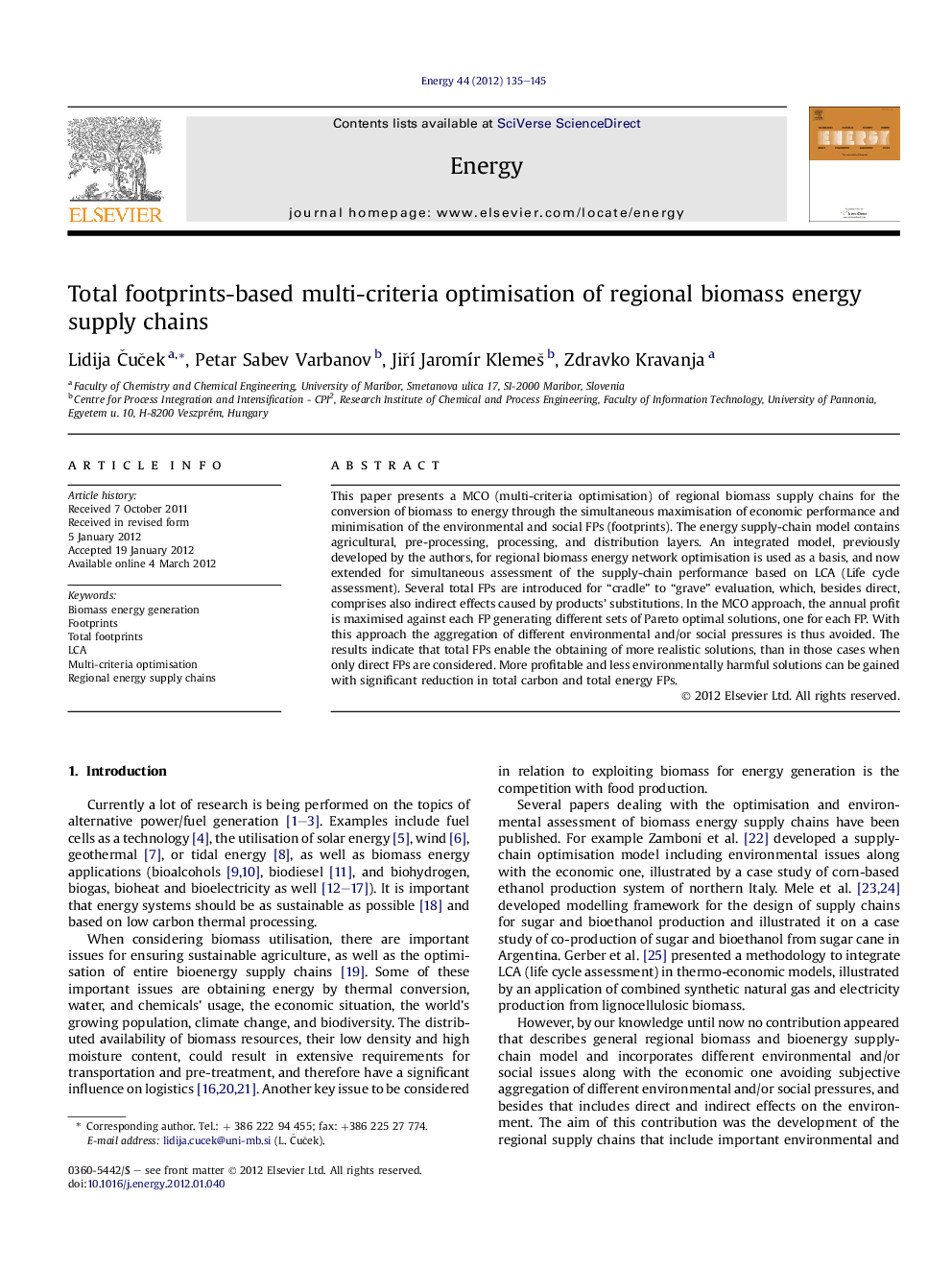| Article ID | Journal | Published Year | Pages | File Type |
|---|---|---|---|---|
| 1733550 | Energy | 2012 | 11 Pages |
This paper presents a MCO (multi-criteria optimisation) of regional biomass supply chains for the conversion of biomass to energy through the simultaneous maximisation of economic performance and minimisation of the environmental and social FPs (footprints). The energy supply-chain model contains agricultural, pre-processing, processing, and distribution layers. An integrated model, previously developed by the authors, for regional biomass energy network optimisation is used as a basis, and now extended for simultaneous assessment of the supply-chain performance based on LCA (Life cycle assessment). Several total FPs are introduced for “cradle” to “grave” evaluation, which, besides direct, comprises also indirect effects caused by products’ substitutions. In the MCO approach, the annual profit is maximised against each FP generating different sets of Pareto optimal solutions, one for each FP. With this approach the aggregation of different environmental and/or social pressures is thus avoided. The results indicate that total FPs enable the obtaining of more realistic solutions, than in those cases when only direct FPs are considered. More profitable and less environmentally harmful solutions can be gained with significant reduction in total carbon and total energy FPs.
► Total footprints comprise direct (burdening) and indirect (unburdening) effects. ► Multi-criteria optimisation of regional biomass supply chain is presented. ► Environmental and social footprints are assessed together with economic performance. ► Total footprints enable obtaining of more realistic solutions than direct footprints.
